Food Allergy Prevention Through Early Food Introduction
Food allergies are on the rise, and if you’re a parent, you’ve probably heard plenty of warnings about what your child should or shouldn’t eat. It’s estimated that 8% of children and 2% of adults in the U.S. have food allergies, and these numbers are climbing—not just in Western countries but also across Asia, including Malaysia.
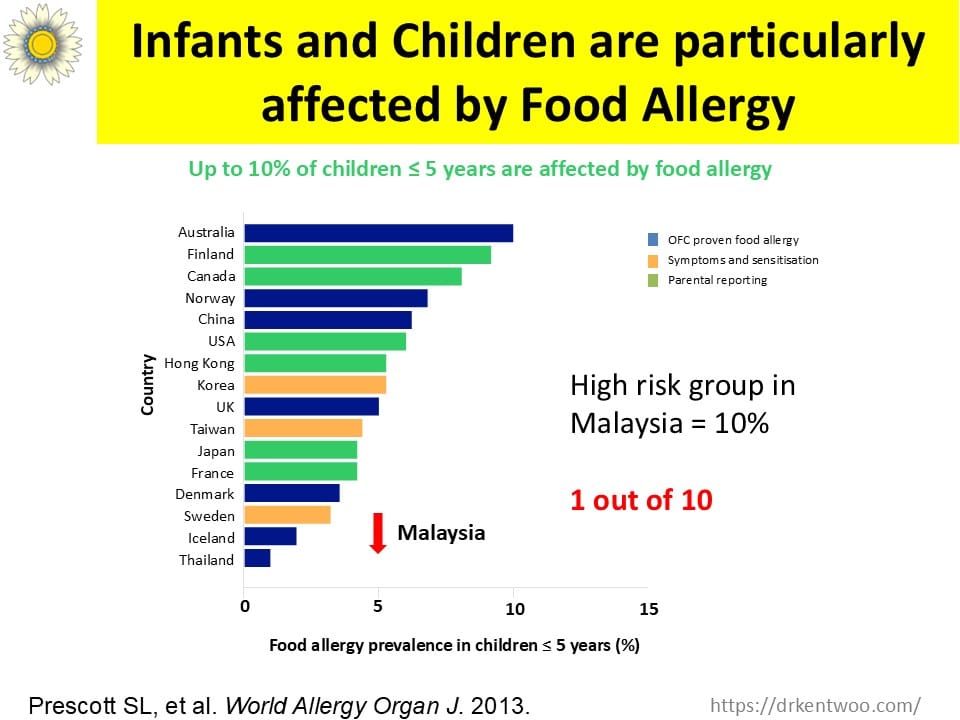
As a doctor, I see firsthand how food allergies affect families, and I know how scary it can feel when introducing new foods to your baby. The good news? Science shows that early food introduction can actually help prevent food allergies. It’s not a perfect solution, but it’s one of the best tools we have right now.
Let’s look into what this means and how you can safely introduce allergenic foods to your baby.
What is Early Food Introduction?
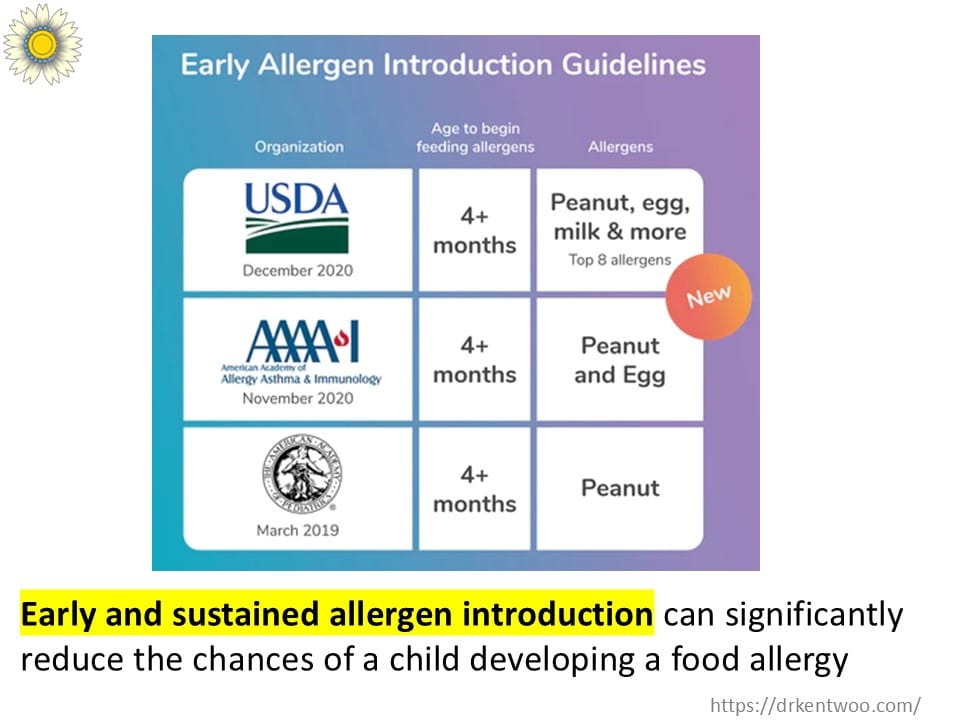
If you’ve ever been told to avoid giving babies peanuts, eggs, or dairy until they’re older—forget that advice! We now know that introducing allergenic foods early (between 4-6 months) can actually reduce the risk of allergies.
Instead of delaying foods like peanuts, eggs, and fish until after age 2 (as was previously recommended), research now supports the opposite: Start early, introduce a variety, and keep it going.
Why Early Introduction Works: The Science
You don’t have to take my word for it—there’s solid research behind this.
✅ The LEAP Study (Learning Early About Peanut Allergy)
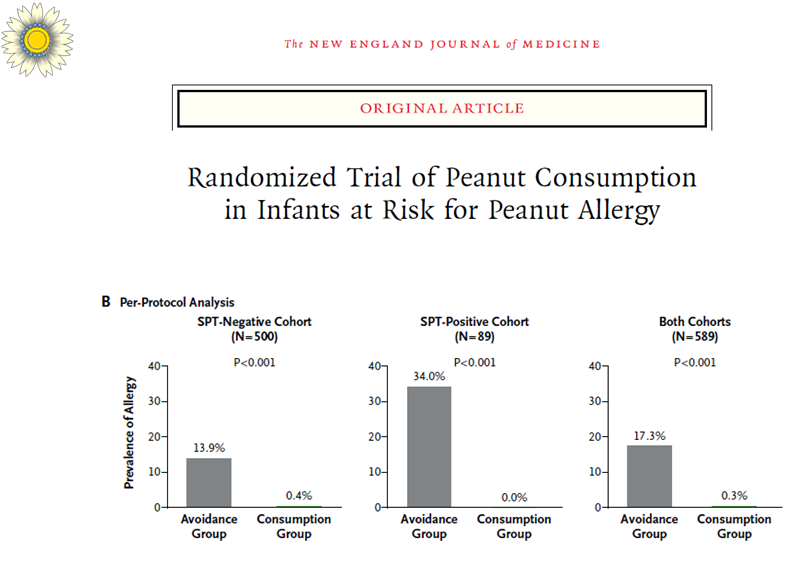
This groundbreaking study found that babies who ate peanuts before 6 months had up to an 86% lower risk of peanut allergy. And the best part? The protection lasted.
✅ The EAT Study (Enquiring About Tolerance)
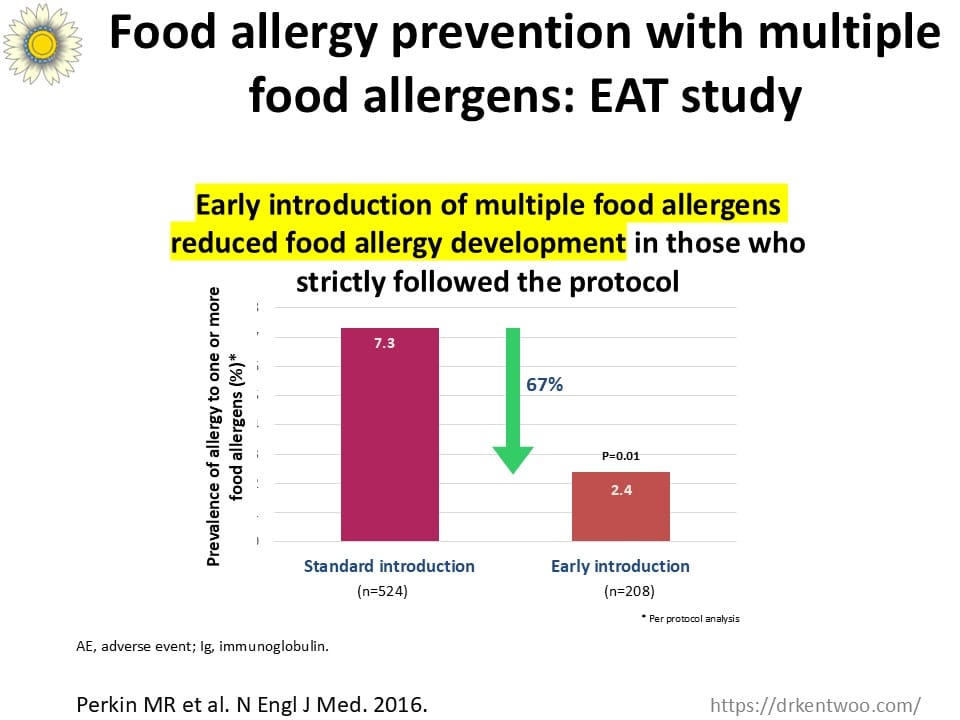
This study showed that early introduction of multiple allergenic foods reduced the risk of food allergies by 67% compared to delaying them.
✅ Real-Life Evidence: Traditional Feeding Practices

Think about how previous generations fed their babies—there was no hesitation in giving them table foods that contained fish, eggs, soy, dairy, or nuts. Studies now suggest that mimicking these practices may help build food tolerance naturally.
Multiple Food Allergen Introduction: A Smarter Way to Reduce Allergy Risk
Many parents worry about introducing multiple allergenic foods at once. But here’s the thing: In many cultures, babies naturally get exposed to varied foods early on, and they do just fine.
There’s even a study that tested multiple food allergen introduction using a pre-mixed sachet, and guess what? It worked! Babies who consumed it showed better protection against food allergies than those who didn’t.
How Can You Do This?
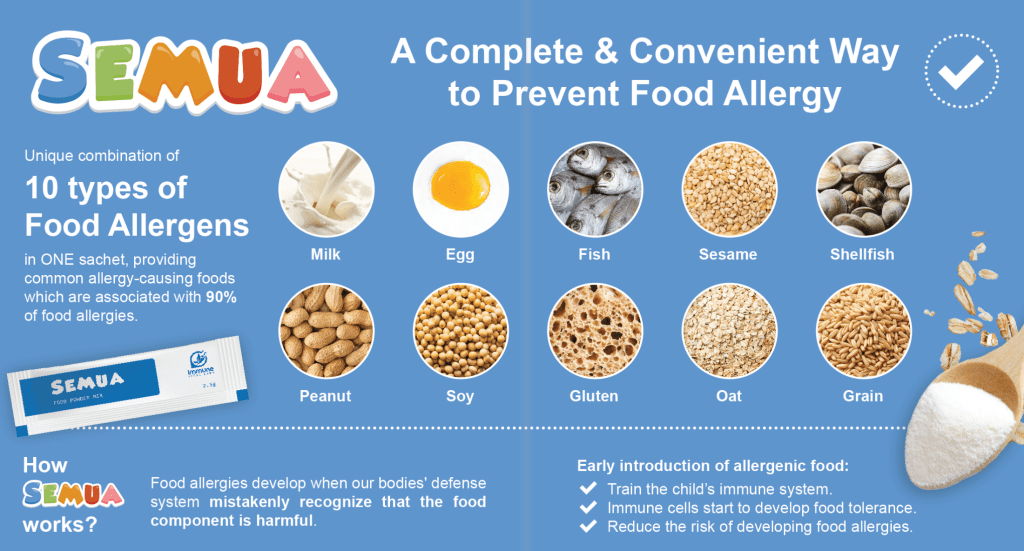
One way to introduce multiple allergens conveniently is with a product like SEMUA (Safe Effective Method Utilizing Aliment)—a food allergen powder designed to make the process easy and stress-free for parents.
How to Introduce SEMUA to Your Baby
Start slowly and gradually increase the amount:
✅ Week 1: Sprinkle a small amount daily onto baby food
✅ Week 2: ½ teaspoon daily
✅ Week 3: 1 teaspoon daily
✅ Week 4: 1 full sachet daily
The goal is to make allergenic foods a normal part of your baby’s diet so their immune system learns to tolerate them.
Fear of Food Allergies? You’re Not Alone
One of the biggest reasons parents avoid introducing allergenic foods is fear—and I totally get it. No one wants to take risks with their child’s health.
But here’s something important to remember: Avoiding foods can actually increase the risk of food allergies. If you’re feeling unsure, talk to a qualified Allergist/Immunologist who can guide you through the process safely.
And if you want to learn more about overcoming the fear of introducing allergenic foods, check out my other post here: → Fear of Introducing Foods to Prevent Allergies
Information You Can Use:
✔ Early food introduction is backed by science.
✔ The best time to start is 4-6 months when your baby is ready for solids.
✔ Regular exposure is key—introducing a food once isn’t enough.
✔ If you have concerns, The Allergy Immunology Clinic team can give proper guidance.
Food allergy prevention is not one-size-fits-all, but introducing allergenic foods early is one of the best strategies we have right now.
Got questions? Need Help? Contact us to schedule an appointment to be seen!




